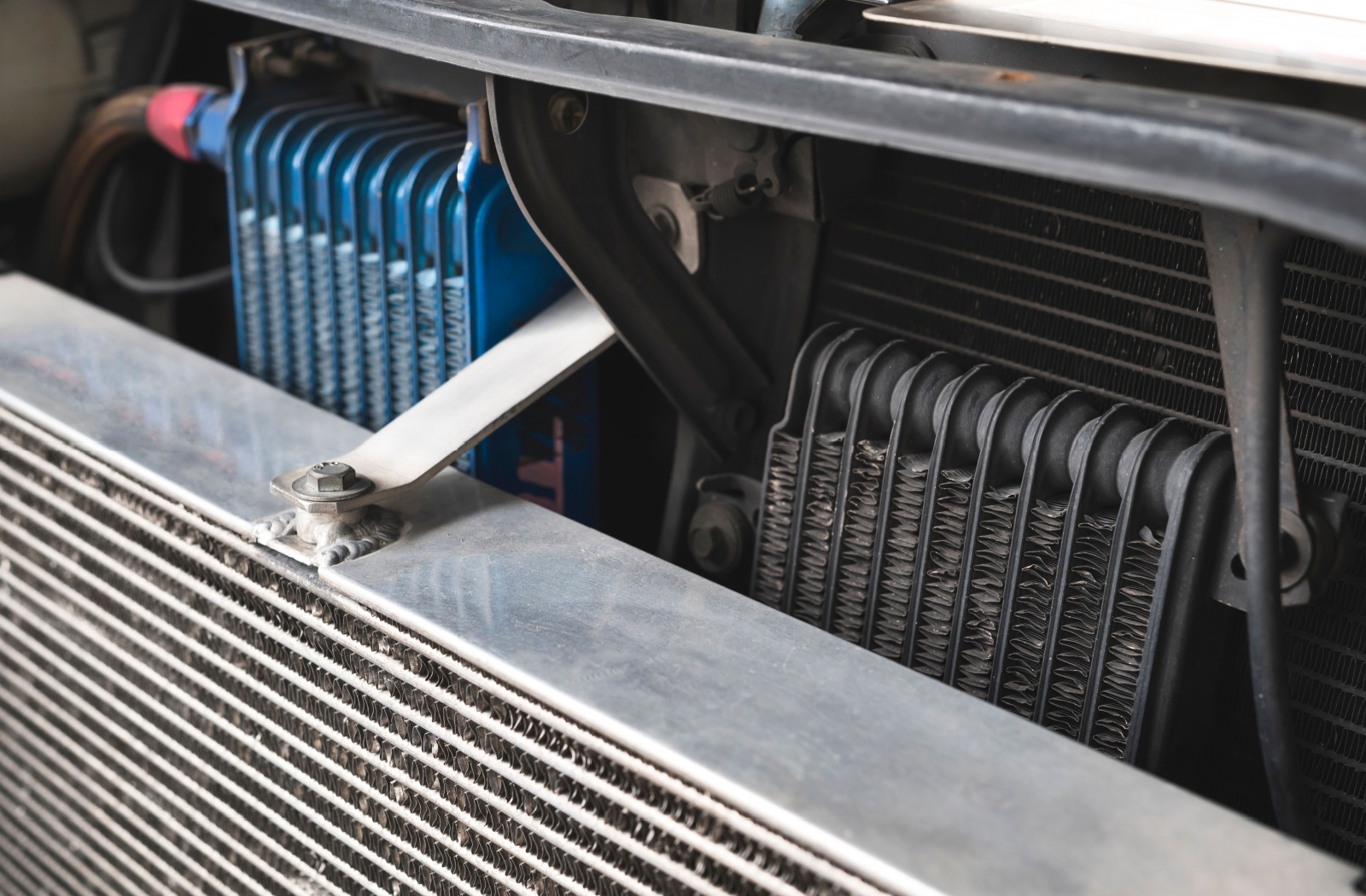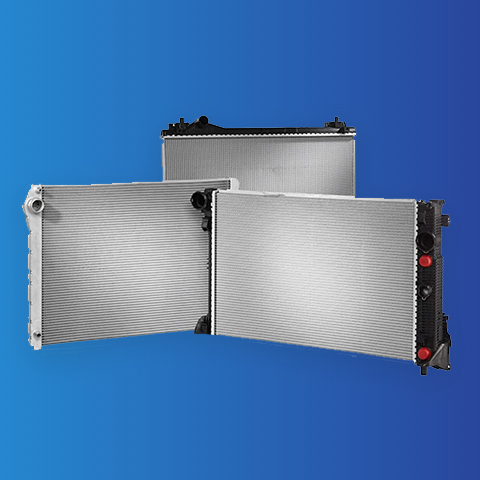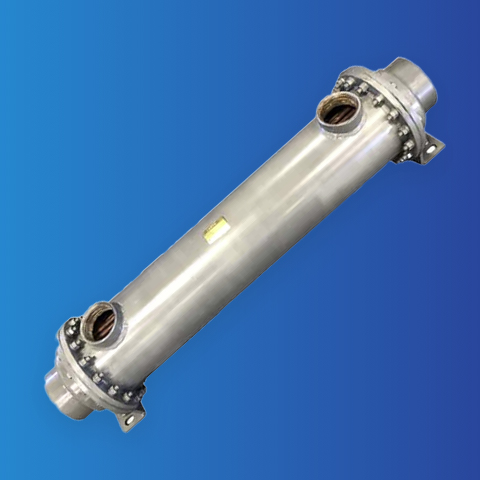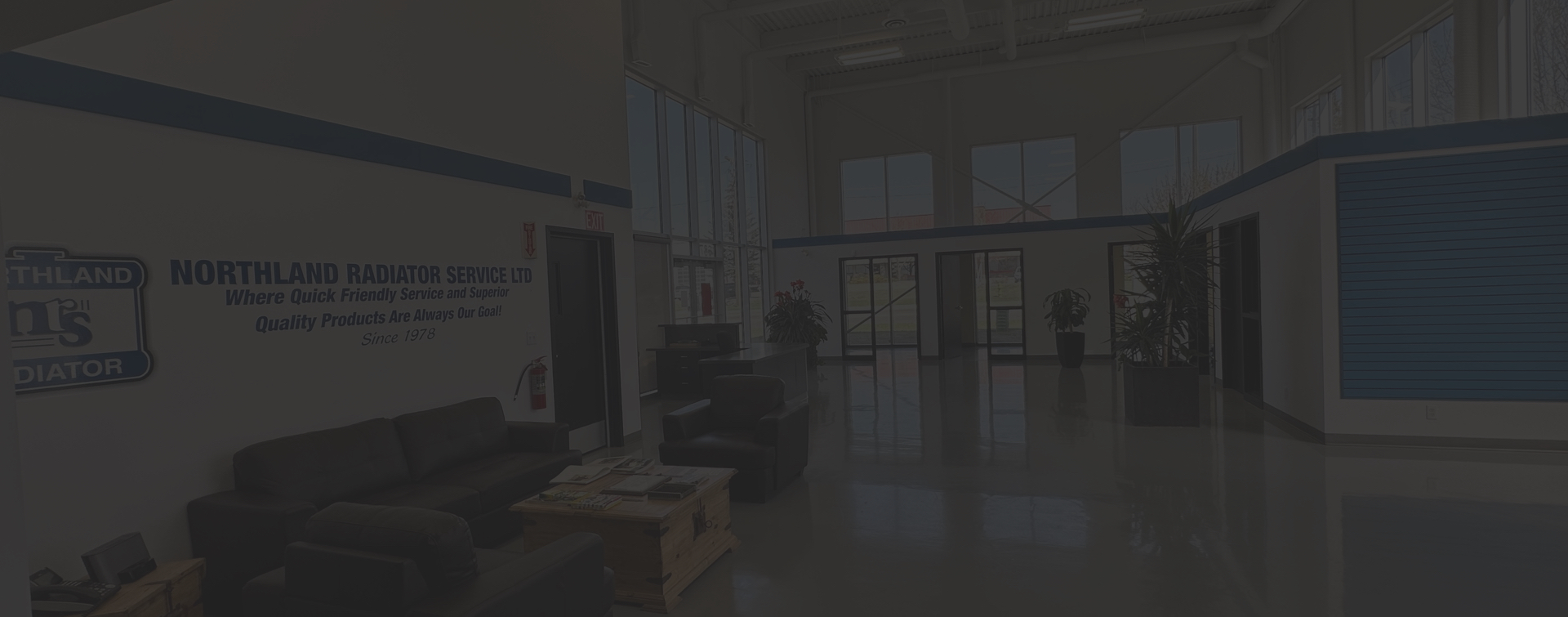Modern vehicles, especially high-performance cars and heavy-duty trucks, face immense demands on their engines. Whether it’s from towing, navigating hilly terrains, or simply enduring extended commutes, the stress placed on an engine can lead to elevated oil temperatures, reducing engine efficiency and longevity.
An engine oil cooler is designed to regulate the temperature of engine oil in order to provide consistent and optimal performance.
What Is an Engine Oil Cooler?
An engine oil cooler is a heat-exchange device specifically designed to remove excess heat from engine oil. Just as the radiator keeps engine coolant at a safe temperature, the oil cooler ensures that engine oil doesn’t get too hot under extreme conditions.
Engine oil plays a critical role beyond lubrication; it also helps regulate internal engine temperatures.
High-performance engines, heavy-duty trucks, and towing vehicles operate under stress. Without a way to regulate oil temperature, the heat generated by these systems can lead to oil breakdown, reduced lubrication efficiency, and even engine wear.
An engine oil cooler minimizes these risks, allowing engine oil to maintain the proper viscosity and perform optimally in extreme temperature conditions.
How Engine Oil Coolers Work
An engine oil cooler works as a heat exchanger. It circulates the engine oil through a series of passages or tubes, allowing the heat to dissipate as it does so.
There are 2 main types of engine oil coolers:
- Air-cooled oil coolers: Air-cooled oil coolers rely on ambient air to dissipate heat. The oil flows through finned tubing, where the heat is released as air passes over the fins.
- Liquid-cooled oil coolers: Liquid-cooled oil coolers circulate engine oil alongside coolant to transfer heat away from the oil.
Both systems work to prevent engine oil from overheating, helping your engine perform reliably even under high workloads.
Types of Engine Oil Coolers
Choosing the best engine oil cooler depends on your vehicle’s needs and operating environment.
- Air-cooled oil coolers: Best suited for vehicles that don’t face extremely high workloads. These models are cost-effective, straightforward to install, and sufficient for daily driving scenarios.
- Liquid-cooled oil coolers: Ideal for high-performance cars, towing vehicles, and trucks. These systems offer efficient and consistent oil cooling, particularly in situations where engines experience extreme stress or in hotter climates.
When deciding between these two kinds of oil coolers, consider the driving conditions, the workload your vehicle endures, and the longevity you hope to get from your engine.
Who Needs an Engine Oil Cooler?
Engine oil coolers aren’t just for racing enthusiasts. They’re potentially useful for any vehicle that experiences high-stress conditions. This includes, but isn’t limited to:
- Towing vehicles: Pulling heavy loads places excessive stress on the engine, increasing oil temperatures. Installing an oil cooler can prevent such stress from causing engine damage.
- Performance cars: High-performance engines generate more heat during operation. Oil coolers can help maintain optimal performance and protect the engine from wear and tear.
- Heavy-duty trucks: Trucks designed for industrial or commercial usage face prolonged heavy workloads. Oil coolers help these engines withstand consistent strain without overheating.
Oil Cooler Installation Tips
Any vehicle part needs to be properly installed to work at its best. Here are some tips for installing an engine oil cooler:
- Compatibility: Always check that the oil cooler you choose is compatible with your vehicle’s make and model. Some vehicles require specific designs.
- Placement: Position the oil cooler where it will receive as much airflow as possible. A common placement is in front of the radiator.
- Professional installation: We recommend professional installation so you can trust that everything is correctly connected and functioning. Improper installation can lead to leaks, reduced efficiency, or potential engine issues.
Maintenance for Engine Oil Coolers
To keep your engine oil cooler functioning as it should, regular maintenance is critical. Here are a few tips to maintain efficiency:
- Inspect for leaks: Periodically check the oil cooler or its connections for leaks.
- Clean fins: For air-cooled systems, ensure the cooling fins remain clean and free from debris that could block airflow.
- Monitor coolant levels: For liquid-cooled systems, maintain the correct coolant levels to keep the heat exchange going.
- Routine servicing: Make oil cooler checks part of your regular vehicle maintenance schedule to catch any issues early.
What’s the Difference Between Engine Oil Coolers & Radiators?
While oil coolers and radiators have similar functions, their key difference lies in the fluids they cool. Radiators manage coolant temperature, whereas oil coolers regulate engine oil temperature.
Both systems are important for maintaining engine health, but engine oil coolers provide added protection for high-performance or heavy-duty vehicles where consistent lubrication and temperature control are crucial.
Common Misconceptions About Engine Oil Coolers
There’s a common belief that oil coolers are only necessary for racing or performance vehicles. This is untrue. Any vehicle that operates under high-stress conditions, such as heavy towing or industrial use, benefits significantly from an oil cooler.
An overheated engine oil system can lead to expensive repairs or reduced overall engine lifespan. A good engine oil cooler can prevent such issues.
Drive with Confidence & Protect Your Engine
Installing and maintaining an engine oil cooler is an investment in your vehicle’s performance and longevity. Whether you’re hauling heavy loads, running a performance car, or simply looking to protect your engine during long road trips, a good oil cooler will protect your vehicle’s engine from heat and stress.
Don’t compromise on the quality and reliability of your engine cooling system. Contact our team at Northland Radiator today to discuss your needs and benefit from our extensive knowledge and commitment to excellence. With our professional installation and technical expertise, you can drive with confidence, knowing that your vehicle is equipped with the cooling power it needs to excel.











